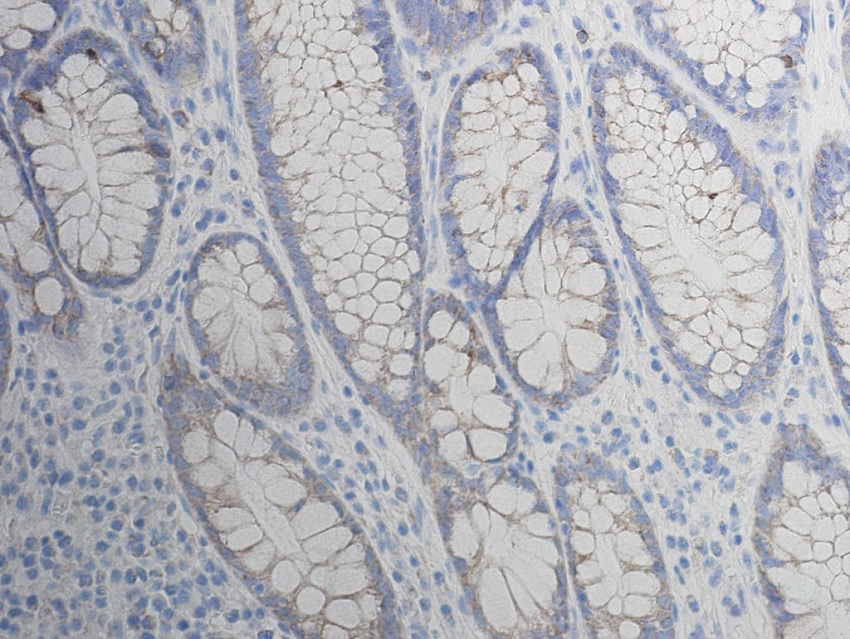Another major development in the science of finding a cure for cancer was reported recently. A group of researchers from the University of Pennsylvania revealed their findings centered on the tumors’ self-destructive quality that can be exploited in finding a way to treat cancer.
Alternative approach to stop tumor growth
The MYC gene is known for its role in normal cell growth. But when affected by cancer, MYC activates a chain reaction leading to the fast growth of tumors. Scientists have been directing various studies that aim to specifically attack MYC, though this goal has proven to be very difficult to carry out.
In the study published by UPenn researchers on the Nature Cell Biology journal on Monday, they shed light on other ways to stop the said chain reaction aside from directly attacking MYC. In doing so, they found a pathway they consider to be MYC’s Achilles’ heel. This approach mainly involves a protein called ATF4.
One of the steps identified is controlled by the kinase called PERK that activates ATF4. But researchers found that targeting PERK along does not always affect MYC because of a second kinase called GCN2. These two enzymes have parallel functions in the entire process.
“What we've learned is that we need to go further downstream to block tumor growth in a way that cancer cells can't easily escape, and our study identifies the target to do just that,” co-senior author Dr. Constantinos Koumenis explained. This led them to the approach of directly targeting ATF4 since it is identified as the converging point for both PERK and GCN2.
Targeting ATF4 blocks tumor growth on cells and mice
Aside from being the converging point of PERK and GCN2, the scientists learned that ATF4 activates the genes MYC needs for growth and regulates the rate of the production of the 4E-BP protein. When ATF4 in cells and mice is targeted, there is no control in the production of the said protein resulting in stress and ultimately leading to the death of tumor cells.
Tests show that tumors stopped growing on mice with lymphoma and colorectal cancer. The same over-expression of 4E-BP and ATF4 was also observed in human cells. This increases the chance of replicating the said result on mice when the same approach is applied to humans, thereby, sparking hopes in developing improved cancer treatments.



 Lost in space: MethaneSat failed just as NZ was to take over mission control – here’s what we need to know now
Lost in space: MethaneSat failed just as NZ was to take over mission control – here’s what we need to know now  NASA Resumes Cygnus XL Cargo Docking with Space Station After Software Fix
NASA Resumes Cygnus XL Cargo Docking with Space Station After Software Fix  FDA Lifts REMS Requirement for CAR-T Cell Cancer Therapies
FDA Lifts REMS Requirement for CAR-T Cell Cancer Therapies  Blue Origin’s New Glenn Achieves Breakthrough Success With First NASA Mission
Blue Origin’s New Glenn Achieves Breakthrough Success With First NASA Mission  Neuren Pharmaceuticals Surges on U.S. Patent Win for Rare Disorder Drug
Neuren Pharmaceuticals Surges on U.S. Patent Win for Rare Disorder Drug  SpaceX’s Starship Completes 11th Test Flight, Paving Way for Moon and Mars Missions
SpaceX’s Starship Completes 11th Test Flight, Paving Way for Moon and Mars Missions  Trump and Merck KGaA Partner to Slash IVF Drug Costs and Expand Fertility Coverage
Trump and Merck KGaA Partner to Slash IVF Drug Costs and Expand Fertility Coverage  SpaceX Prioritizes Moon Mission Before Mars as Starship Development Accelerates
SpaceX Prioritizes Moon Mission Before Mars as Starship Development Accelerates  NASA Astronauts Wilmore and Williams Recover After Boeing Starliner Delay
NASA Astronauts Wilmore and Williams Recover After Boeing Starliner Delay  SpaceX Starship Explodes in Texas During Test, Citing Nitrogen Tank Failure
SpaceX Starship Explodes in Texas During Test, Citing Nitrogen Tank Failure  Eli Lilly’s Inluriyo Gains FDA Approval for Advanced Breast Cancer Treatment
Eli Lilly’s Inluriyo Gains FDA Approval for Advanced Breast Cancer Treatment  Cogent Biosciences Soars 120% on Breakthrough Phase 3 Results for Bezuclastinib in GIST Treatment
Cogent Biosciences Soars 120% on Breakthrough Phase 3 Results for Bezuclastinib in GIST Treatment  Neuralink Expands Brain Implant Trials with 12 Global Patients
Neuralink Expands Brain Implant Trials with 12 Global Patients 































